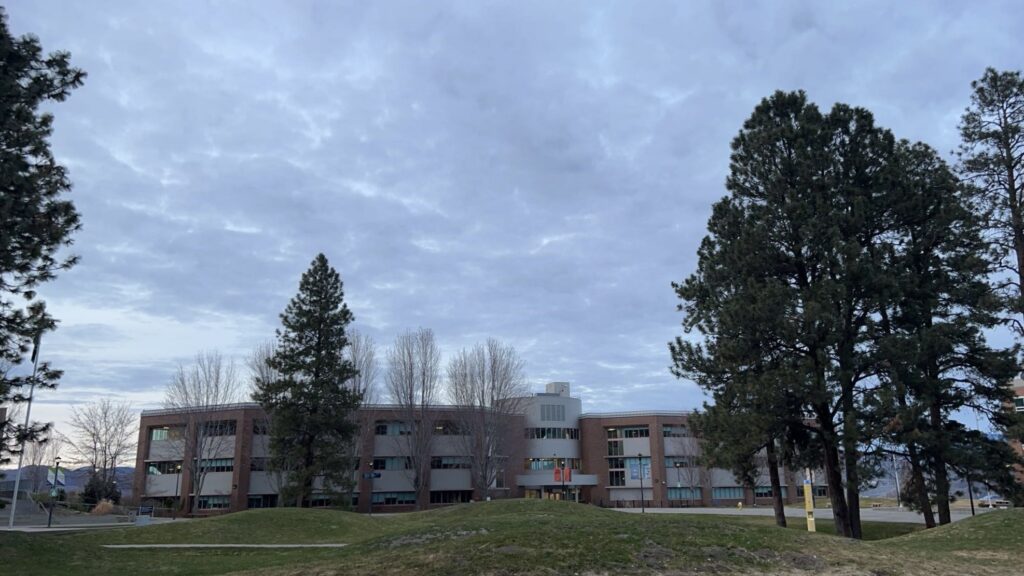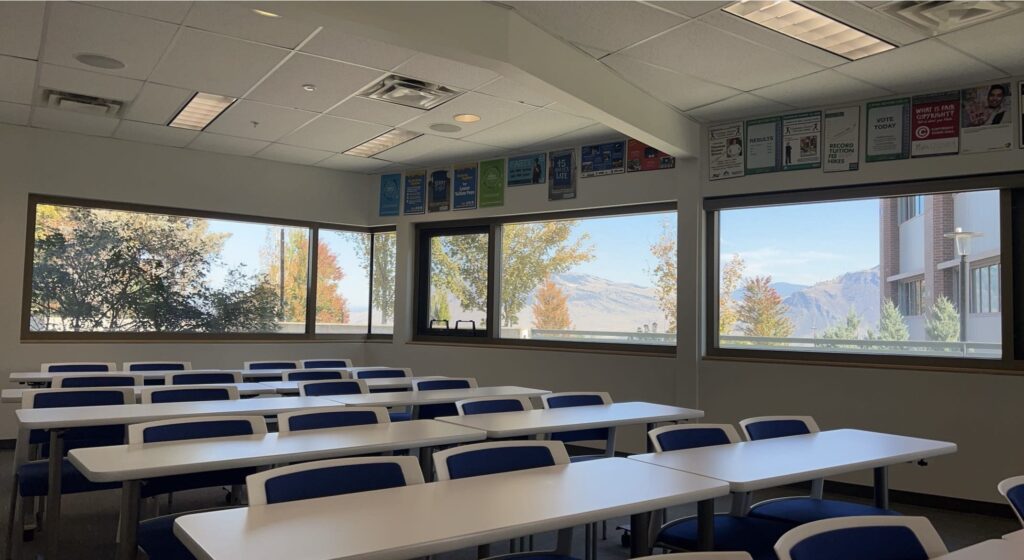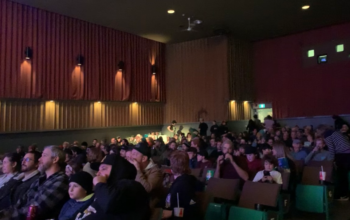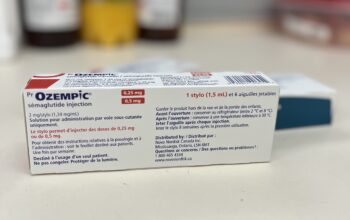By Jannat Bhullar
Kamloops B.C. – The Thompson Rivers University (TRU) has integrated a Tri-Cameral Governance structure within its functioning over the years.
According to the TRU website, “The tri-cameral governance generally utilizes collegial governance processes to achieve decisions by one of the three governing bodies at TRU: the Board of Governors, the Senate and the Planning Council for Open Learning.”
Therefore, providing opportunities for staff, faculty, and students to participate in decision-making processes that shape the institution’s corporate and academic positing, the experience makes for crucial learning.
Based on the TRU Governance and Administration website, “Governance at TRU is divided into three bodies responsible for corporate and academic decision-making,” where each makes essential decisions that affect the program provided at the institution and how it functions.
Split between the Board of Governors, the Senate, and the Planning Council for Open Learning, TRU are responsibilities that each governing body oversees, broadly contributing to the Tri-Cameral Governance Structure at TRU, based on the website.
According to the Accreditation website, “TRU was established by an act of the British Columbia Provincial Legislature, the Thompson Rivers University Act, in 2005.”
The British Columbia University Act legislates the leadership and degree-granting powers of the university, explained Shariyer Iqbal Chowdhury, who presently sits on the Board of Governors as a student representative.
Under the Tri-Cameral Governance structure, the university follows the TRU Act and the University Act, said Chowdhury.
Gopi Yerraguntia, currently a student representative on the Senate, said that the university, being an incorporeal entity, acts through others.
He added that the powers to act for the institution are divided among its governing bodies.
“Briefly, the Board of Governors makes decisions regarding property development, labour and finance issues,” said Chowdhury.

Outside Arts & Education Building, TRU Campus, Kamloops
“Meanwhile, the Senate and the Planning Council for Open Learning make decisions on curriculum, credentials, admissions, and educational policies,” he added.
To fill certain positions on the three governing bodies, TRU conducts its elections primarily during the fall semester with a possibility of by-elections happening during the winter semester, mostly in cases when any position goes vacant, commented Yerraguntia.
He added, “As a student myself, I take immense pride in being able to serve the [student] community through my involvement in governance.”
“The role of a student representative on a governance body or the students’ union is to present an opinion on behalf of the student community regarding how a proposed decision or change within a program or the institution will affect them,” said Yerraguntia.
Apart from the three TRU governing bodies, the Thompson Rivers University Students’ Union (TRUSU) “is a democratic, membership-based organization…The membership as a whole is the highest decision-making body, and all members have the ability to exercise their decision-making rights with an equal vote at the Union’s Annual General Meeting,” based on the TRUSU website.
“TRUSU is an on-campus organization where student representatives elected by students work with the staff to advocate for students, provide services, organize events and administer grants,” said Loshima Shongo, a committee representative on the University Affairs Committee of TRUSU.
She added, “Primarily, all the committees work towards making post-secondary experiences for students memorable.”
“A significant portion of our work is focused towards voicing students’ concerns and advocating for their rights, be it for minority groups, international students, or other communities on campus,” elaborated Shongo.
Moreover, the website mentions that “The Union maintains the Student Caucus. This body tracks institutional issues and provides support for student representatives across the campus.”
“The Student Caucus is made up of all elected and appointed student representatives on institutional bodies and is chaired by the President of the Students’ Union,” according to the website.
In addition to the three TRU governing bodies, Shongo said, “The Student Caucus also comprises student representatives participating across the Community Trust, the Administrative Advisory Committees, and the Faculty Councils, where student representatives serve with other faculty and staff members.”
The Student Caucus website states that the Community Trust is “responsible for managing private real estate development on campus that incorporates housing and amenities.”
The Administrative Advisory Committees are “responsible for operational decisions and overseeing major projects,” and the Faculty Councils are “responsible for faculty-based academic decisions,” mentions the website.
“Student Caucus is one of the extended arms of governance at TRU where student representatives from across different committees, working groups, and sub-groups come together to collectively learn about what is currently going around us and attend training or workshop sessions to sharpen our skills and knowledge that facilitate our roles and duties on our respective areas that our committee, [working group or sub-group] focuses on or works for the betterment of,” elaborated Chowdhury.

TRUSU Lecture Hall
“Allowing students to participate in the [TRUSU or TRU governance] selection and election processes through the opportunity of contesting in the elections or casting votes,” said Deeparsh Singh, a member-at-large on the Services Committee of TRUSU.
He added, “In my opinion, it is a great way of allowing the student population to select who they want among the governance to voice their concerns.”
“Through democratic processes, students actively contribute, ensuring their concerns are heard and addressed in the institution’s approach, which empowers elected student representatives to influence pivotal decisions, bridging the gap between administrative policies and student perspectives,” commented Singh.
“The UAC under the Together TRU Projects works in collaboration with institutional partners that come from departments across the institution where there are faculty, staff, or administrators interested in working with students to improve the campus experience,” said Shongo.
Shongo added, “The aim behind the approach is to bridge the gap between student ideas and concerns by matching [Student Caucus members willing to participate] with ongoing campus improvement projects to create positive change on campus.”
Together TRU website states that the “outreach seeks to identify unique opportunities for collaborative work and to recognize broad themes of student priorities.”
“Each semester, Student Caucus members connect directly with students through various outreach activities,” added the website.
Additionally, “Students are asked to provide feedback on their educational experience, campus services and support, and to identify any ideas or opportunities for change here at TRU,” said Shongo.
She added, “Some of the significant projects that we [UAC] conducted under the Together TRU approach were Review of Student Rental Agreements, Student Housing Feedback Sessions, Open Education Resource Development, and Addition of Co-chair Position in Environmental Sustainability Advisory Committee.”
“After the work on a project is collectively finalized in terms of what, when, how, and where, the committee members and [Student] Caucus members sign up for tabling slots or, in some cases, a session. Through outreach with students, we collect feedback that is later integrated into a report and submitted to our partner in the project, which is usually a TRU department.,” explained Shongo.
She added, “The feedback is then followed up with at a later date to see what has been implemented or improved upon from the feedback and if or not there is a need for another session. Following which, a post is also sent out through our website.”
“For example, last year, we conducted Residence Feedback Sessions where we invited residents of different student housings to provide feedback. Out of the feedback, certain changes were implemented to improve the student housing experience,” said Shongo.
Taiba Bhullar, a first-year geography student at TRU, commented, “As a new student, I feel that through the available opportunities [within TRU and TRUSU] to get involved in governance, student concerns are voiced and advocated by those who themselves have lived the experience.”
“I look up to the students involved in any form, be it through TRUSU or university governing bodies, because vocalizing and working towards fixing student issues or problems in a space where you may have to reason with faculty and staff is not always easy,” she added.
TRUSU Governance Overview and Student Interviews
References:
- https://www.tru.ca/about/accreditation.html
- https://www.tru.ca/current/student-life/communications-storytelling-and-events/lingo.html#:~:text=The%20tri-cameral%20governance%20generally,Planning%20Council%20for%20Open%20Learning.
- https://www.tru.ca/about/governance.html
- https://trusu.ca/about/
- https://trusu.ca/about/student-caucus/
- https://trusu.ca/advocacy/together-tru/


